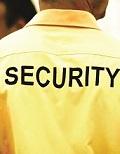
 Planning for event security for sports (or anything else for that matter, such as a concert, a hospitality event or a festival), should be something you put some serious thought into. Anyone planning to hire a security firm should be ready to ask some questions of the company they potentially want to work with. Asking these questions now can help you have the best possible outcome for your event.
Planning for event security for sports (or anything else for that matter, such as a concert, a hospitality event or a festival), should be something you put some serious thought into. Anyone planning to hire a security firm should be ready to ask some questions of the company they potentially want to work with. Asking these questions now can help you have the best possible outcome for your event.
Pricing: As professionals, we understand this is going to be the first thing people want to know: how much does it cost to hire a security company? And generally speaking, people have an idea in their head about what they should be paying. But it’s important for us to let them know that what they expect to pay may be very different from what the going rate is, depending on their needs.
High-end security, in which the personnel may have a strong background and skill set, such as retired police officers or military (we also use off-duty firefighters, for example, and we really find them to be a great asset) will result in a higher hourly rate than will a company that uses people without any training (and whose only asset might be that they are big and look strong.) Keep in mind that you’ll be getting what get what your pay for.
A company that sends trained personnel will be sending individuals who can effectively handle situations such as individuals who have had too much to drink, who are under the influence of drugs or who have become unruly or combative. And in general, that security organization is going to be able to remedy the situation with the least amount of force. (Contrary to what people might think, the role of security shouldn’t be to break up fights or get aggressive with people; it should be to defuse those issues before they become bigger problems.) A trained security officer also knows when it’s time to contact police; an untrained individual may not do so until it is too late.
Company Qualifications: Security companies should be licensed, bonded and insured. We can’t say that enough. Especially in this day and age, you need a company that can indemnify your event. (This is another reason not to go with individuals who are acting only as bouncers: they’re not going to be carrying company insurance and you as an event planner, as well as the event as a whole, can be held liable if someone says they were injured by the people you hired – or even if they say they were injured because you had inadequate security.) Ask for proof of licensure, bonding and insurance prior to agreeing to work with any company. Check references too; find out if the company has experience with events like the one you’re planning to put on. You should be confident that you are protected, as well as your spectators and athletes.
Local Expertise: The company you hire should be familiar with the venue and the jurisdiction you’re working in. For example, they should be familiar with the local police department and should know the person to contact there if they think additional officers are needed. (As a side note, if the local police sends officers to cover your event, it can help lower the overall cost of security in your event planning; however, this should not take the place of working with a security professional.)
Having a Plan: A good security company will develop a full security plan in advance of your event. That means they will sit down with you and go over the event itself including where and when the event will be, and the types of attendees you have (age, demographic, hours of operation, what time(s) you expect the event to be at its busiest, etc.) They can look at the venue and come up with a plan for placement of personnel. For example, they’re going to ask how soon before the start of the event you want them to be present and how late you want them to stay once it’s over.
What some people fail to realize is that a security plan may be required by many cities for permitting purposes. (An example of an event that will need a permit is a road race such as a marathon or a bicycle race, or a sports event in a public park area.) Often, a representative of the local police will need to sit down with the security company and with the event planner to discuss the plan; therefore, it is essential to map this out in advance. (We will talk about advance planning later in this article.)
Not only should there be planning on the front end of the event; there needs to be follow-up. Our standard operating procedure is to hold post-event meetings, and talk to the event planner and their staff. In particular, we want to find out how the event went, what worked and what could have been improved upon. For example, was there a bottleneck of people trying to get in through the security stations at a certain time, while later in the day, fewer personnel could have been used? How can things be planned out more efficiently next year? Ultimately, what you’re trying to do is create a relationship with a security company so that whenever you come back to the city to hold that event, you have a dependable vendor to work with.

Specific Needs: If your event is such that you are worried about anti-terrorism measures, there are some security companies that specialize in this. A good security company will be able to refer you to those personnel, or can consult with them, if necessary.
Plan Ahead: This is one of the most important things to remember: Don’t wait until the last minute to make arrangements. Remember that many security companies, particularly those that rely on trained personnel such as retired police or military, do not have people sitting around their office waiting for your call. It takes time to meet with a client, see the venue, develop a plan – and then set up arrangements so that the appropriate number of people can be present. Large events will call us a year out while others may have a six- to eight-month lead time. Under no circumstances should you put it off. Good security doesn’t happen at the last minute.
Financial Control: Will your staff be taking money at the gate, or selling concessions or souvenirs? You can lower the risk of funds disappearing by having security come by periodically to collect cash and deposit it in an area that only one or two people (at the most) will have access to it. We often advise people: not all theft takes place because of someone wearing a mask and carrying a gun. If too many people have access to your funds, it’s harder to control them and much easier for them to ‘walk.’
Contingency Plans: If there is inclement weather, will it affect spectator placement? Where should security be stationed if that is the case? In addition, make sure security is able to plan for coverage during meals, bathroom breaks, etc.
Guest Services: Security personnel will want to make sure they know who your event staff is. We always advise event planners to have their staff wear shirts that are easy to see – something in a neon color with EVENT STAFF on the back is great. That way, if spectators approach your security with a question about the event itself, security has no trouble spotting a staff member and referring them along.
While it’s impossible to put years of experience into several pages, it is possible for a trained security force to bring this kind of experience to your event and make that experience work in your favor. With proper planning, you can help make that happen.

